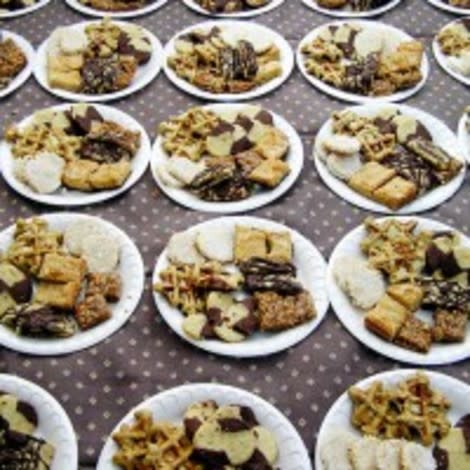Chocaholics Anonymous: Is Food Addiction Real?

"I'm seriously addicted to those cookies. I can not stop myself from eating them."
"Be careful with those brownies, they're totally addictive."
"Oh, I just can't have food like that in the house. I'll eat it all at once. It's like I'm an addict or something."
These statements, which are pretty typical these days, may be slightly hyperbolic but they all point to the same thing: there is something about food, or certain foods (sugar, I'm looking at you!), that triggers behavior we associate with addiction. Perhaps there is a certain snack we seek out everyday, feeling incomplete and anxious until we've had it. Or maybe there are times when it's not until we're licking the crumbs off our fingers that we realize we've eaten a whole bag of chips.
Certainly these behaviors are unsettling, but are they really addictive? Food "addictions," though often discussed, are only beginning to be studied. Just recently the Diagnostic and Statistical Manual of Mental Disorders (DSM) announced that binge eating will be included as a formal diagnosis. In order to shed more light on this serious subject, the Journal of Biological Psychiatry has dedicated it's entire current issue to the discussion of food addiction. The editors of the issue, Drs. Dana Small and Ralph DiLeone of the Yale School of Medicine wanted to offer a balanced view of the debate.
Related: The 10 craziest things women do to lose weight
On the one hand food, unlike drugs, alcohol, and other addictive substances, is a necessity. It also doesn't hold up to the normal "tolerance and withdrawal" model that is typical of those substances. But food does stimulate the same regions of the brain that are lit up by addictive substances, prompting similar patterns in the reward circuitry - in fact, sugar has been shown to be as "rewarding" to our brains as cocaine.
While the medical community has officially, via the DSM, recognized that binge eating is a disorder closely related to drug addiction, there is still plenty of research that needs to be done before we fully understand the relationship between food and addiction As scientists and doctors continue to work to find answers and offer guidance for how we can use this knowledge to help build a healthier country, just know that there may be a grain of truth to that off-hand remark you made about your favorite cookies.
-By Lizzie Heiselt
Follow Lizzie on Babble
For 6 reasons why chocolate is a health food, visit Babble!
MORE ON BABBLE
You'll save money on therapy...and 7 more unexpected benefits of exercise
The 25 healthiest foods for under $1
The 5 worst foods for weight loss
7 food additives you should think twice about before eating

